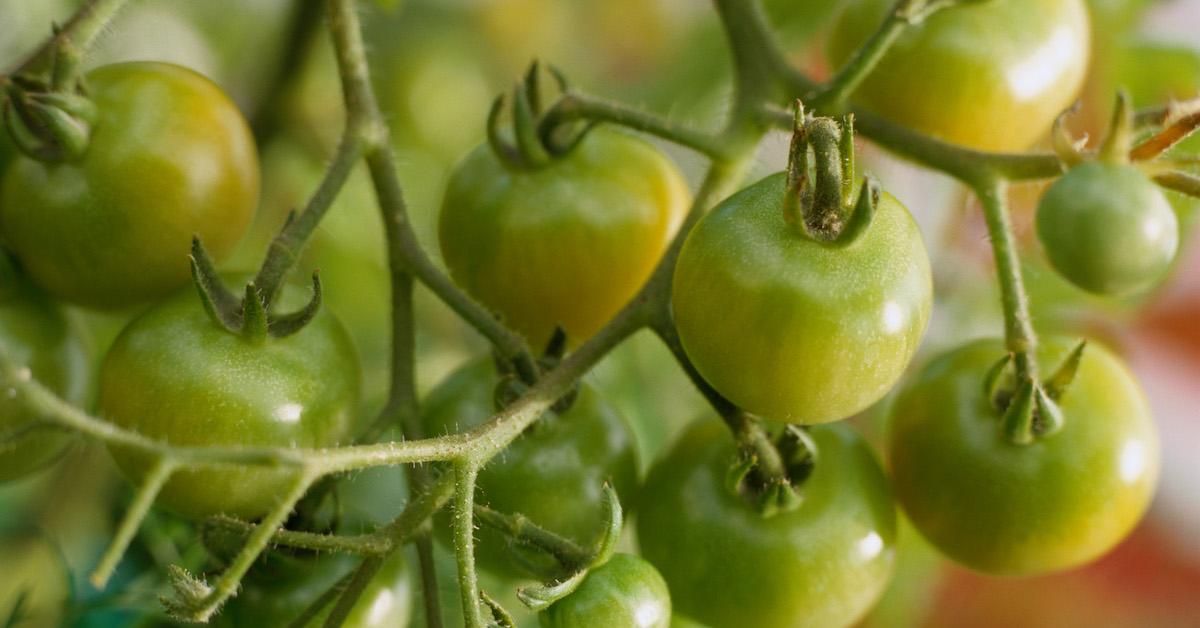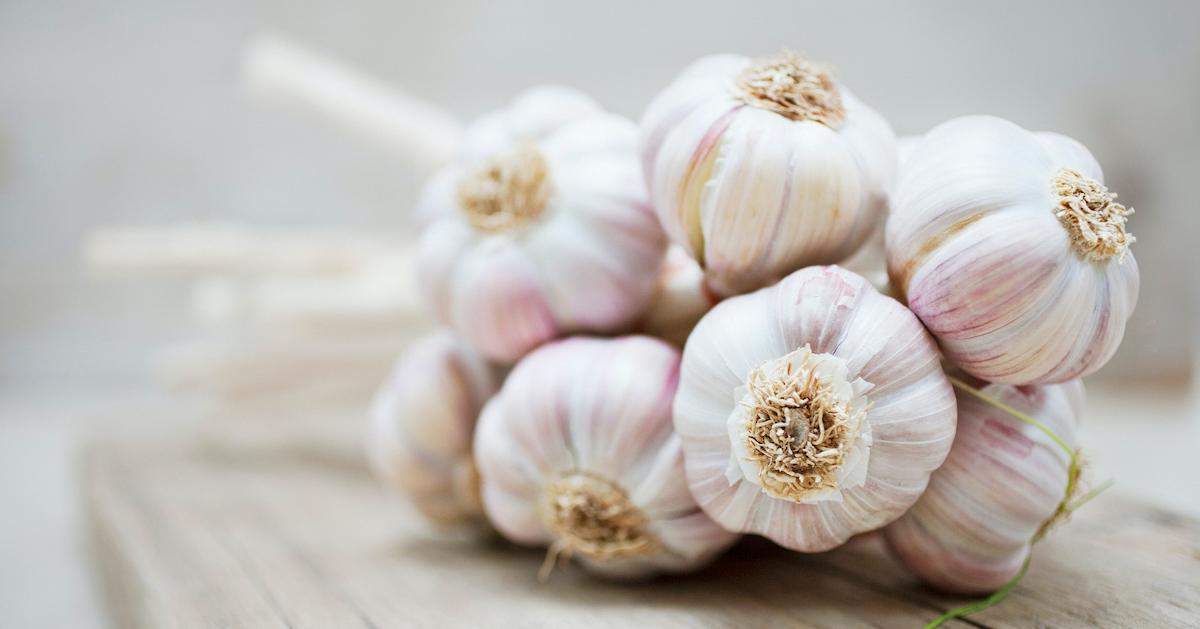Everything You Need to Know About Natural Insecticides
Published March 1 2021, 4:37 p.m. ET

Farmers use insecticides are used to ward off pests that harm crops and farm animals, though they can sometimes end up harming humans and pets, too. For safety reasons, many people opt for natural insecticides that cause fewer toxic effects on both people and pets. Keep reading for more on less harmful alternatives.

What are the dangers of traditional insecticides?
Insecticides include a wide range of harmful ingredients, including: acephate, DEET, bifenthrin, and more. Acephate exposure can cause skin and eye irritation, rapid organophosphate poisoning, headaches, dizziness, blurred vision, chest tightness, sweating, nausea, vomiting, diarrhea, muscle twitching, loss of coordination, convulsions, coma, and sometimes death. According to NJ.gov, acephate should be treated as a possible carcinogen.
DEET can cause a myriad of issues including brain toxicity, according to TIME, while bifenthrin exposure can cause skin and eye irritation, irritability, abnormal facial sensations, numbness, headache, dizziness, nausea, vomiting, diarrhea, excessive salivation, fatigue, fluid in the lungs, and muscle twitching. The U.S. Environmental Protection Agency (EPA) also has also classified bifenthrin as a possible human carcinogen.

What is a natural insecticide?
According to a joint presentation by Washington State University, Oregon State University, and Idaho University, natural insecticides kill and fend off pests, with all-organic ingredients, that meet organic farming guidelines.
While natural insecticides theoretically contain all-natural ingredients, they aren't necessarily entirely non-toxic. When humans or pets come in contact with insecticides – even natural insecticides – either by touch or ingestion, there could be side effects, so be aware.

How to make natural insecticide:
Making your own natural insecticide is totally possible without any synthetic ingredients. You can make insecticide spray with soap, garlic, chili pepper, tomato leaf, or all-purpose garlic, onion, and pepper base.
Tomato leaf insecticide mixes 2 cups of chopped tomato leaves and 4 cups of water. Tomatoes are nightshades, which means its leaves produce a natural repellent to sap-sucking bugs. Mix the chopped leaves and 2 cups of water, let it steep overnight, and strain the leaves from the mixture the next morning. Add 2 more cups of water, then pour into a spray bottle, and use accordingly.
You can also try a garlic-based insecticide by combining 1 head of peeled and pureed garlic with 1 cup of water, and 1 ¼ tablespoons of liquid soap. Add another 3 cups of water to the garlicky paste, then puree the mixture for another 2 minutes. Pour the mixture into a jar, then add 1 ¼ tablespooon of liquid soap. Let it sit overnight, then strain and pour into a spray bottle. The sulfuric compounds in the garlic will kill and ward off bugs.

Some plants are natural insecticides.
Some plants are natural insecticides, such as the aforementioned tomato leaves. Certain plants like lemon balm, basil, peppermint, and citronella will naturally ward away mosquitoes if planted in your garden. But what about those other nasty bugs that eat your plants?
Chrysanthemums are known to ward off ants, Japanese beetles, roaches, bed bugs, spider mites, ticks, silverfish, harlequin bugs, and plant lice. Mint and basil are repel mosquitoes, but mint can also deter spiders and ants, while basil can also prevent houseflies. Petunias work wonders against asparagus beetles, leafhoppers, aphids, tomato worms, and other pesky bugs, while rosemary is a good go-to for repelling nearly any kind of bug.
Garlic has some strong anti-insect properties, too. Planting garlic could help to deter Japanese beetles, root maggots, carrot root flies, codling moths, and aphids. Pro tip: Plant your garlic near roses to deter aphids from chomping on your flowers. Also, a mixture of essential oils from plants like basil, lavender, mint, rue, sage, and thyme can sometimes repel insects.

You can also buy natural insecticides:
If you'd rather not get roped into a DIY project, buy a ready-made natural insecticide. A common ingredient called bacillus thuringiens, aka "Bt" deters caterpillars from eating cabbage, cauliflower, and other "Brassica"-classified crops. Bt can also be used against corn earworms, cutworms, tomato hornworms, and other worm pests. Try products like BT kurstaki (Bt-k) or Safer Garden Dust.
Tomato Leaf insecticide only requires two ingredients: 2 cups of chopped tomato leaves and 4 cups of water. Tomato are nightshades, vegetable family, so its leaves produce a natural repellent to bugs that suck sap from plants. Mix the chopped leaves and 2 cups of water together, let the water steep overnight, then strain the leaves from the mixture the next morning. Add 2 more cups of water, then pour into a spray bottle. Spray your plants!
If you don’t want to use tomato leaves as the base of your natural insecticide, you can try a garlic-based insecticide. Combine 1 head of peeled, pureed garlic with 1 cup of water, and 1 ¼ tablespoons of liquid soap. The sulfuric compounds in the garlic will work to kill offenders and warn off any other bugs that might want to come near. Add another 3 cups of water to the garlicy paste, then puree the mixture for another 2 minutes. Pour the mixture into a jar, then add 1 ¼ T of liquid soap. Let it sit overnight, then strain and pour into a spray bottle. Spray those plants!
Have pets? Read more about how long to wait before allowing pets outdoors after spraying.
Plants that are natural insecticides
Some plants are natural insecticides, such as the aforementioned tomato leaves. Certain plants like lemon balm, basil, peppermint, and citronella will naturally ward away mosquitoes if planted in your garden. But what about those other nasty bugs that have a way of eating your plants?
Chrysanthemums have been known to ward off ants, Japanese beetles, roaches, bed bugs, spider mites, ticks, silverfish, harlequin bugs, and plant lice. Mint and basil are great for repelling mosquitoes, but mint can also deter spiders and ants, while basil can also prevent houseflies. Petunias work wonders against asparagus beetles, leafhoppers, aphids, tomato worms, and other pesky bugs, while rosemary is a good go-to for repelling nearly any kind of bug.
While it’s not really a flower, garlic has some strong anti-insect properties, too. Planting garlic could help to deter Japanese beetles, root maggots, carrot root flies, codling moths, and aphids. Pro tip: Plant your garlic near roses to deter aphids from chomping on your flowers.
Also, a mixture of essential oils from plants like basil, lavender, mint, rue, sage, and thyme can sometimes repel insects.
effective and safe choices for natural insecticides.
Bacillus thuringiensis – or Bt – is a popular ingredient in natural insecticides that is effective against deterring caterpillars that eat cabbage, cauliflower, and other crops classified as “Brassica.” Bt can also be used against corn earworms, cutworms, tomato hornworms, and other worm pests. Try products like BT kurstaki (Bt-k) or Safer Garden Dust.
Diatomaceous Earth is another commonly used natural insecticide brand that is effective in eradicating hard-bodied, crawling insects like ants, spiders, cabbage root maggots, cutworms, carrot rust fly larvae, and more.